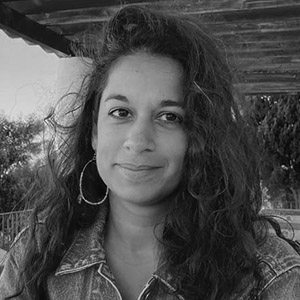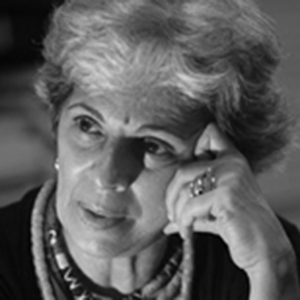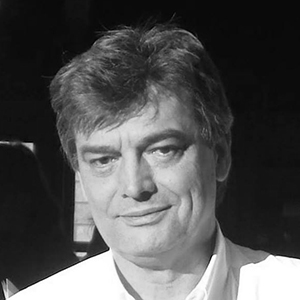Isac Marcelino – Piquiá de baixo
TF/TK PROJECT
Translating Ferro / Transforming Knowledges of Architecture, Design and Labour for the New Field of Production Studies is a joint Brazil/UK project funded by the AHRC and FAPESP with the aim of defining and consolidating a new field of Production Studies, structured and informed by the work of Brazilian architect and theorist Sérgio Ferro.
Led by an Anglo/Brazilian team of 2 Principal Investigators, 4 Co-Investigators, 2 Postdoctoral Researchers and 3 Technical Trainees, TF/TK is a 4-year project that responds to the global crisis in building today by bringing together architectural historians and theorists, producers of formal and informal built environments, partner organisations and scholars from political economy, art history and anthropology to collate, structure and apply the cross-cultural, interdisciplinary field of Production Studies. TF/TK launched in October 2020 with the key objectives to:
Collate and structure resources and methods for Production Studies (PS) which advance critical understanding of relations between design and construction, and identify alternatives in which formal and informal building processes can become catalysts for social change. [TF/TK website and repository]
Provide English translations and multidisciplinary critical responses to Sérgio Ferro’s work that test the potential of its methods and theories as a framework for PS. [publications and reading groups]
Involve academics in architecture and related disciplines, and producers of the built environment in the testing and co-production of exemplar studies for future PS research. [case studies in PS]
Engage with a wide range of publics by transforming awareness of the conditions in which the built environment is produced via talks, screenings and workshops, and by supporting existing grassroots producers through strengthening networks and freely accessible resources. [programme of events]
In year 1 we are translating Ferro’s key texts for publication and debating them in monthly Portuguese and English reading groups involving a growing body of international practitioners, activists and academics. We have hosted talks from Advisory Board Members Linda Clarke (UK), Carlos Martins (BR) and Peggy Deamer (US) and begun working with our group of 20 affiliated researchers. Our Production Studies website and repository is in development and will be launched at our first public event at Central St Martins, London in February 2022.
Sérgio Ferro
Since the 1960s Brazilian architect, painter, and theorist Sérgio Ferro has been developing the single most sustained enquiry into design, labour and the construction site, yet his work remains little known outside the Brazilian and French contexts where it was developed. Like many prominent artists and architects, including João Vilanova Artigas and Oscar Niemeyer, Ferro joined the Brazilian Communist Party in 1959. But it was when he had the opportunity to design and build in Brasilia that he was exposed to the violent reality of the construction site, in direct contradiction to the humanist and emancipatory aims of modernist architects. Ferro began to look for an answer in Marxist theory for the conditions of architecture’s mode of production.
During his studies at FAU-USP Ferro formed a collective with collaborators Rodrigo Lefèvre and Flávio Império who became known as the Arquitetura Nova group and they began an intense period of creative activity of painting, theatre, theoretical studies and architecture. Together they would go on to produce a remarkable series of houses and buildings marked in particular by the use of rudimentary materials and the catenary vault. The group was recognized with an entire issue of the architecture journal Acropole in 1965. And in 2018 Ferro’s work with Arquitetura Nova was the centrepiece of the Orléans Architecture Biennale in 2019. The group is the subject of a dual language special issue of the Brazilian architecture journal arq.urb (2020), which includes articles by many members of the TF/TK team. https://revistaarqurb.com.br/arqurb/issue/view/30.
In 1967, during the military dictatorship, Ferro left the Communist Party and joined armed resistance groups. He published his first texts analysing the production of mass housing and contemporary Brazilian architecture before being arrested and dismissed from the university. In the following year, Ferro took exile in France, where he taught at the Grenoble School of Architecture until his retirement in 2000 and founded with colleagues the Dessin/Chantier research and teaching lab. During this time and at a distance from Brazil, he published the first version of his most important architectural text O Canteiro e o Desenho, latter published as in French as Dessin/Chantier (2005) amongst many other works studying for example the consequences for construction and labour of Le Corbusier’s sculptural designs intentions La Tourette, the meanings of labour in Michelangelo’s sculpture and architecture, and developing the monograph on the emergence and uses of classical design in the extraction of surplus value from building labour. In 2006 Arquitetura e Trabalho Livre, a collection of Ferro’s essays edited by TF/TK Co-I Pedro Arantes was published in Brazil to great acclaim, influencing historians, theorists and activists working with grassroots movements, and two further monographs have followed Artes Plásticas e Trabalho Livre (2015) and Construção do desenho clássico (2021) edited by TF/TK Co-I Silke Kapp.
Sérgio Ferro’s works demonstrate that since design was separated from the building site it has been complicit in the expropriation of labour power on the building site, a mere service provider in the process of capitalist production of value. And conversely he points to the reinvention of a mode ‘design immersed in the return of productive autonomy’ that would be ‘the contradictory opposite of the indignity of enslaving design at the service of capital.’ Led by Co-I Silke Kapp, with post-doctoral researcher Marianna Moura and translators Ellen Heyward and Ana Naomi da Sousa, TF/TK is editing and translating a 3 volumes of Sergio Ferro’s work into English:
- Architecture Seen From Below: a Reader which showcases the full methodological, theoretical and historical breadth of Ferro’s work.
- Dessin / Chantier – Critical Edition will be the first English translation of Ferro’s seminal text, first published in Portuguese (1976, 1979), then in French (2005), and in Arquitetura e Trabalho Livre (2006). The publication is funded by the University of Grenoble.
- The Construction of Classical Design – Ferro’s most recent monograph first published in Portuguese in 2021 as Construção do desenho clássico.
Our aim in translating Ferro’s work is first to provide a common critical, theoretical and methodological ground for Production Studies, and direct it towards social action and to make it finally available to the English-speaking world.
Throughout 2021 we are reading these texts as they are translated and debating them in monthly Portuguese and English reading groups, involving a growing body of international practitioners, activists and academics. We have been compiling some of the questions Ferro’s work raises across disciplines and practices.
Isac Marcelino – Piquiá de baixo
Production Studies
Against the contemporary context of disconnected relations of production, depletion of resources, ever-worsening conditions of construction across the globe, TF/TK looks to Ferro’s work to advance the critical understanding of relations between architectural design and the production and labour of building. Following Ferro, the project resists the social and technical elevation of architects over builders, by generating new knowledge in Production Studies through co-production with formal and informal building producers, design practitioners, teachers and academics. Our aim in proposing the urgently needed field of Production Studies is to foster interdisciplinary critical analysis of these relations, while at the same time advancing the development of responsible and just alternatives.
In addition to investigating the production of the built environment and the histories and theories of their relations, we seek to identify existing alternatives and possible new forms of production, in which building processes – in themselves and not just their products – can become catalysts for social change. By integrating the intellectual and empirical projects with an active program to engender autonomy, equality, justice, creativity and joy in the social and material production of space, we seek to advance these values as fundamental aspects of social and material production of space.
As a means to effect change, the project will transform knowledge of design and building production through a series of activities held with academics in the field of Production Studies, researchers and producers of the built environment, and with wider publics including:
- an annual programme of Production Studies symposia and exchanges in the UK (Newcastle, London) and in São Paulo state (São Paulo; São Carlos).
- the co-production of 24 new case studies – that are aimed as exemplars to both address the gap in academic knowledge of production (histories of informal and formal production, related disciplinary approaches such as anthropology, political science) and to provide resources for further action and change (documenting the work of social movements and self-builders, recording and trialling alternative forms of design pedagogy that engage with production).
- publishing and other outputs, including booklets; anthology; website; audio play; exhibitions.
Isac Marcelino – Ataíde_o mestre – Novo Horizonte SP
Why translate Ferro?
Ferro mobilises the critique of political economy to discuss architecture (as material production and not merely intellectual production). This opens up new perspectives and questions on several but always intertwined topics, such as:
- architecture and art history
- political economy of design
- professional organisations
- education and pedagogies
- social movements and prospects
The vector crossing and articulating these topics is human labour (work).
architecture and art history
- How does a work of art or architecture stand within the production relations of its time and place?
- Which mediations and hierarchies has the work’s production implied or created?
- And where, within production relations, do works not recognised as art or architecture, stand?
- How do stylistic changes relate to (class) struggles at building sites?
- Why have classical design canons spread over the modern colonial world?
- How did the spread of sovereign territorial states contribute to these?
- How have the boundaries between aesthetics and technique developed?
- How are these shaped by art markets?
- How has technical development in different contexts and social formations defined architects’ roles?
political economy of design
- If a building is manufactured (factory without machinery), how does design relate to the work on site?
- Why did design evolve from modelling to drawing and then to calculations, specifications, detailing etc.?
- Why is design done for construction, but never really fits construction?
- How are the production relations that characterise building sites reproduced or modified in other productive activities?
- What role do economic policies play in maintaining these relations?
- What are the international commodity and value chains behind construction sites, and how are these governed?
- How have material innovations been deployed to reassert control over labour, and how does labour respond?
professional organisations
- Why are architects’ professional organisations associated with engineers rather than with craftspeople?
- How do (legal) professional responsibi- lities of each context mirror their conditions of production?
- Do capitalist relations at the building site lead to capitalist relations at the ‘drawing site’?
education and pedagogies
- To what extent is practical knowledge about building part of the education of architects in each context? Why?
- How would education not alienated from the building site appear?
- If ‘every free building site is a university’, then how can universities be made into free building sites?
- How would this re-shape the “teaching site”, for training architects as well as in other fields?
movements and prospects
- How can collective production of space or its prospect give rise to politically strong communities?
- What kinds of communities emerge among workers on building sites under different circumstances?
- And how does the proliferation of migrant labour affect them?
- What political orientations do social activism and movements take?
- What emancipatory prospects do they seek? What production relations do they rehearse?
- Does the experience of (relatively) free work lead to glimpses of a free society?
- Does a decolonial turn open up possibilities for other production relations and other aesthetics?
Isac Marcelino – SP – Vale do Anhangabaú
PRINCIPAL RESEARCHERS

Katie Lloyd Thomas
(UK / Reino Unido)
Newcastle University, Newcastle upon Tyne

João Marcos de Almeida Lopes
(Brazil / Brasil)
Instituto de Arquitetura e Urbanismo de São Carlos – Universidade de São Paulo (IAU USP)
Co-Investigators

Silke Kapp
Escola de Arquitetura da Universidade Federal de Minas Gerais (UFMG)

Pedro Fiori Arantes
Universidade Federal de São Paulo (Unifesp)

Matt Davies
Newcastle University, Newcastle upon Tyne

José Tavares de Lira
Faculdade de Arquitetura e Urbanismo da Universidade de São Paulo (FAUUSP)
translators

Ellen Heyward
Independent arts manager, curator, translator & interpreter

Ana Naomi de Sousa
Independent documentary filmmaker, writer-journalist and translator
Post-Doctoral Researchers

Will Thomson
Newcastle University, Newcastle upon Tyne

Mari Moura
Escola de Arquitetura e Urbanismo da Universidade Federal de Minas Gerais (UFMG)
Technical Training Scholarships

Giovana Martino
Instituto de Arquitetura e Urbanismo de São Carlos – Universidade de São Paulo (IAU USP)

Lara Melotti Tonsig
Instituto de Arquitetura e Urbanismo de São Carlos – Universidade de São Paulo (IAU USP)
AFFILIATED RESEARCHERS
Alex Warnock-Smith
Central Saint Martins
Alexander Wood
New-York Historical Society Museum & Library
Christine Wall
University of Westminster
Danielle Child
Manchester Metropolitan University
Hugh Strange
Hugh Strange Architects / AHO, Oslo
Jane Hall
Assemble
Julia Heslop
Dwellbeing (Newcastle University)
Liam Ross
University of Edinburgh
Megha Chand Inglis
The Bartlett School of Architecture – UCL
Miriam Delaney
TU Dublin
Nick Beech
University of Westminster
Tijana Stevanovič
KTH, Stockholm
Tilo Amhoff
University of Brighton
Ana Paula Koury
Universidade São Judas Tadeu / São Paulo – SP
Ana Buim
Universidade São Judas Tadeu / São Paulo – SP
Caio Santo Amore
Peabiru / São Paulo – SP
Carina Guedes
Arquitetura na Periferia / Belo Horizonte – MG
Cecília Lenzi
IAU-USP / São Carlos – SP
Felipe Contier
Universidade Mackenzie / São Paulo – SP
Flavio Higuchi
Usina CTAH / São Paulo – SP
Ícaro Vilaça
Universidade Federal da Bahia – Salvador – BA
João Fiammenghi
FAU-USP / São Paulo – SP
José Thiesen
Universidade Federal de Goiás / Goiás – GO
Kaya Lazarini
Usina CTAH / São Paulo – SP
Lara Melotti
IAU-USP / São Carlos – SP
Mariana Borel
Arquitetura na Periferia / Belo Horizonte – MG
Raíssa Cintra
IAU-USP / São Carlos – SP
Sergio Ekerman
Universidade Federal da Bahia / Salvador – BA
Thiago Ferreira
IAU-USP / São Carlos – SP
ADVISORY BOARD

Linda Clarke
Professor of European Industrial Relations, University of Westminster and runs the Centre for the Study of the Production of the Built Environment

Peggy Deamer
Professor Emerita of Architecture at Yale University and founder of the Architecture Lobby, campaigning for the value of architectural design and labour

Ana Fernandes
Professor at UF Bahia. She chaired the ANPUR urban planning research organization (2005-07) and coordinates the diverCIDADE program (CAPES/FIPSE)

Carlos Martins
Full Professor, founder and first director of the Institute of Architecture and Urbanism (IAU) at USP, São Carlos and former president of ANPARQ – National Association of Research and Graduate Studies in Architecture and Urbanism

Peter Osborne
Professor of Modern European Philosophy, Director of the CRMEP at Kingston University, and founder of Radical Philosophy editorial collective

Evaniza Rodrigues
Leader of the Union of Housing Movements – UMM, acted as a consultant to government ministries in Brazil. Holds a degree in Social Work and is a PhD student in Architecture and Urbanism

Jeremy Till
Pro-Vice Chancellor of the University of Arts, London. PI on HERA funded project Scarcity in the Built Environment and AHRC funded Spatial Agency